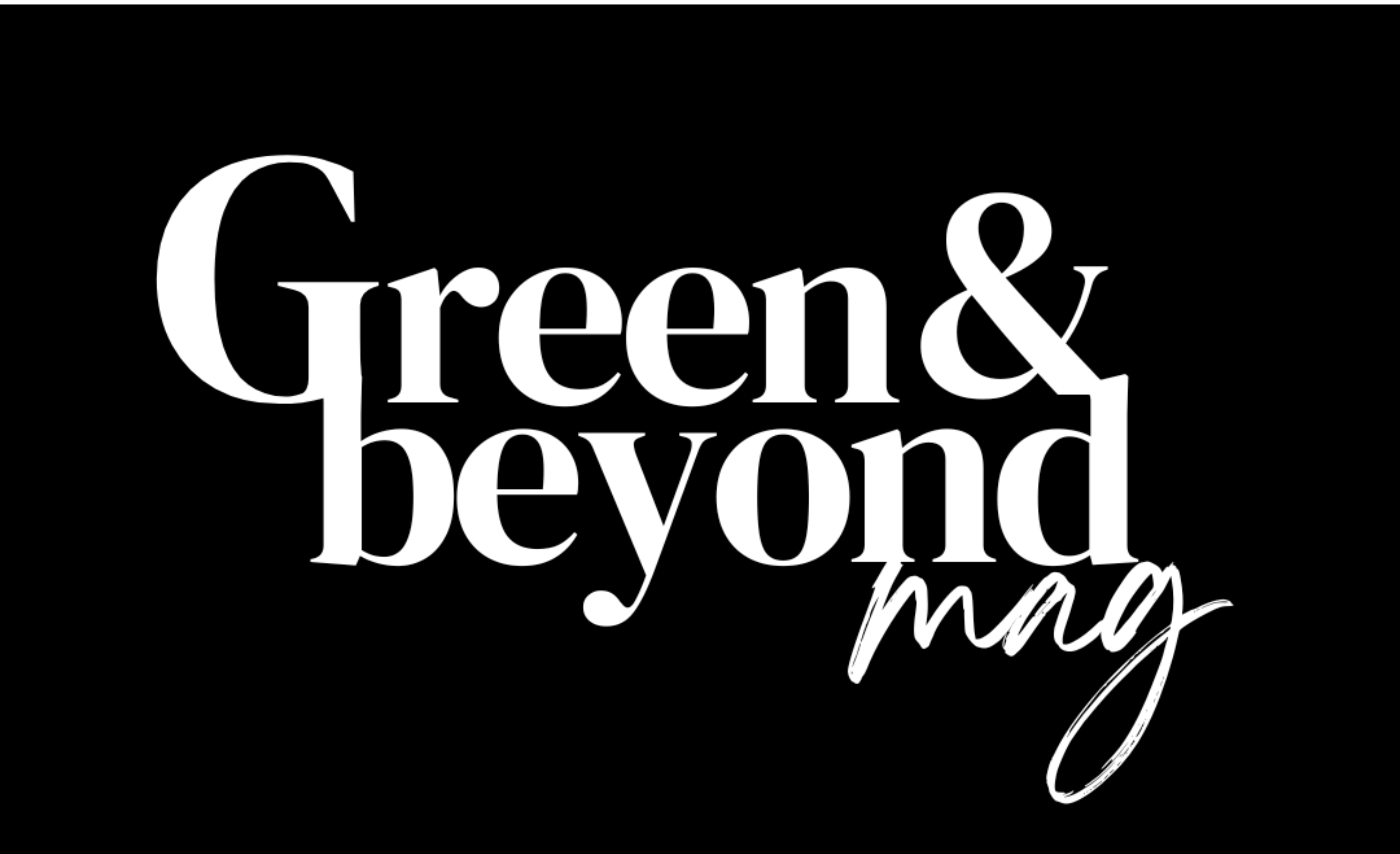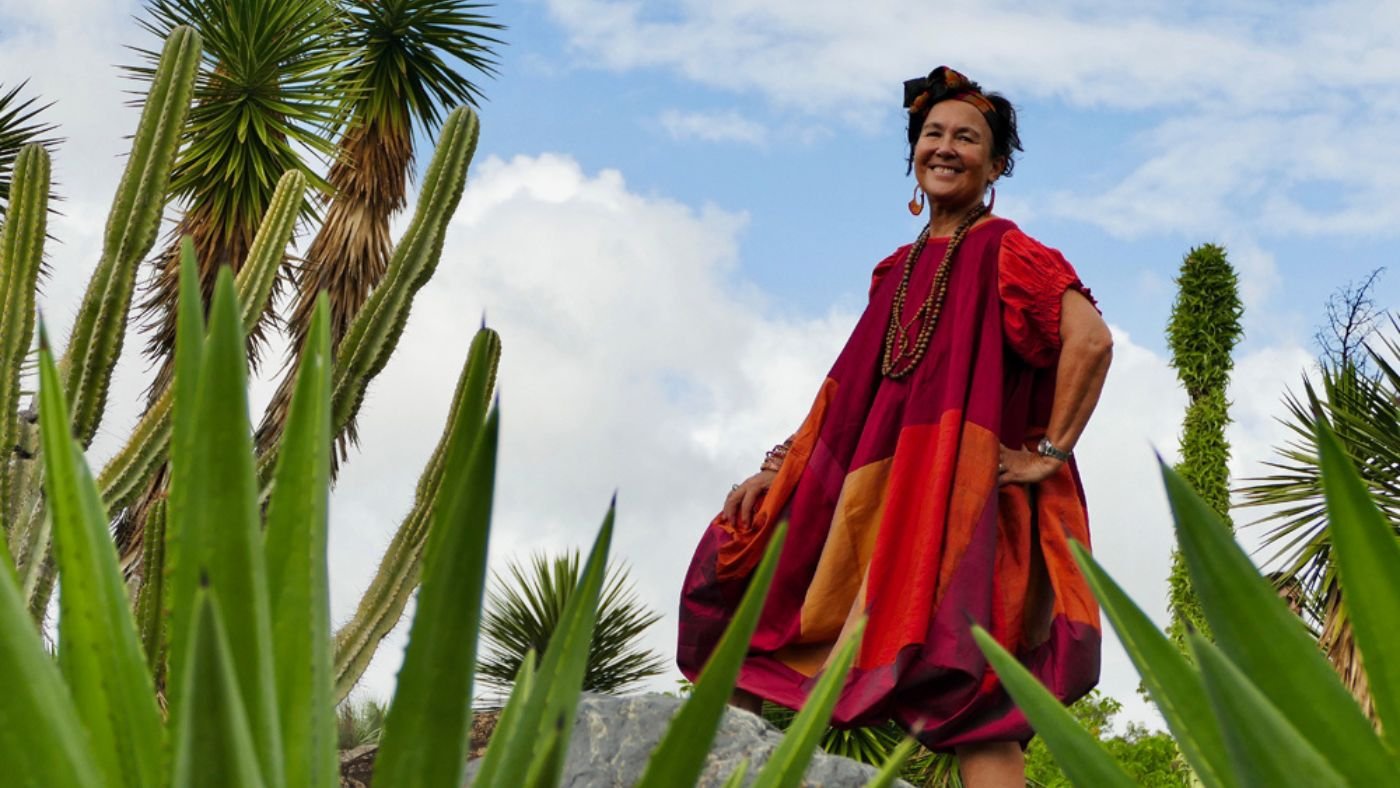Within the dynamic world of Eco Fashion Week Australia (EFWA), Jane Milburn emerges not just as a Sustainability Advisor but as a seasoned storyteller, weaving tales of purpose and transformation. Her roots trace back to a sheep farm in New Zealand, a foundation that instilled life skills and an intimate connection to nature. Jane’s journey aligns with the rhythm of slow fashion, cultivated on the principles of mindfulness and resourcefulness.
Jane, a sustainability consultant and author of ‘Slow Clothing: finding meaning in what we wear,’ delves into her early influences and the seamless integration of slow fashion into her life. Her career, navigating through agricultural science and rural advocacy, led her to champion the cause of slow clothing as an antidote to the rapid pace of the fashion industry. As a key figure in EFWA, she brings not just expertise but a profound commitment to natural fibers, sustainability, and a shared ethos that forms the close-knit family of EFWA.
In this exclusive interview, Jane shares insights into her role as the coordinator for the upcoming EFWA Upcycling Challenge 2024, a platform where designers breathe new life into dormant textiles, echoing Jane’s own journey of upcycling. EFWA, under Jane’s influence, transcends the conventional fashion narrative. It stands as a beacon for raising awareness about the environmental impacts of the fashion industry, a cause Jane passionately advocates. As we unravel the layers of Jane’s journey, it becomes apparent that she doesn’t just speak of sustainability; she lives it, fostering a community that echoes the principles of mindful living in the fashion world.
Could you share a bit about your early influences and what sparked your interest in sustainability, especially in the context of clothing and textiles?
Sustainability has always been intuitive to me. We (humans) are part of nature so we can’t waste, pollute and overuse natural resources if we want to keep living. Looking back, I have always been a slow fashion practitioner. I grew up on a sheep farm in New Zealand and saw natural systems at work. I learned life-skills (to cook, grow, sew, knit and crochet from my ancestors) from my Great Grandma, Nana, Mum, Dad and Aunts. We moved to Australia for education and I graduated in agricultural science: always loving the natural fibres and being resourceful and creative with my clothing as an undergraduate. I had a decades-long professional career in rural journalism and communications before winning an opportunity to join the Australian Rural Leadership Program. The insight and perspectives from that postgraduate leadership training led to me stepping up to advocate for slow clothing as an antidote for fast fashion. My key interest is always in natural fibres and educating around the fact that the synthetic fibres (from which two-thirds of clothing are made) is actually plastic, polluting our ecosystems with microplastics and impacting personal and planetary health in ways that we are only beginning to understand.
Can you share how your journey intertwined with Eco Fashion Week Australia (EFWA) and how you became a part of this sustainable fashion community?
I had been speaking out about the unsustainability of fast fashion culture for five years when Zuhal got in touch out of the blue and invited me to be involved in Eco Fashion Week Australia. That first event in November 2017 gave me a deadline for my book (Slow Clothing) and I was thrilled to have copies available at the sustainability seminar that Zuhal organised as part of the week. Up until that point, most fashion events were about the spectacle of beautiful bodies and exciting styles without any explanation or discussion about clothing culture, inclusive styles and sustainability issues.
EFWA is often described as a close-knit family. Could you please share your thoughts on that?
Everyone involved with EFWA has shared values. We value natural fibres, sustainability, as well as kindness and care for all people and things. We all have a common purpose of raising awareness and influencing change in the creation and culture around clothing that is an essential part of living a good life. The huge effort Zuhal has put into creating EFWA is admirable and I support her endeavours in any way I can.
As the coordinator for the EFWA Upcycling Challenge 2024, can you tell us more about the challenge and its significance in promoting sustainability?
Upcycling is all about seeing potential in dormant, damaged or waste resources and reviving them for a creative new life. For the Upcycling Challenge 2024, we’re asking designers to find a hero textile – a beautiful piece of cloth that may be sentimental, from a damaged garment or rescued from an op shop – and use that as the spark to join with other pieces of dormant cloth to create a fresh ‘’new’’ garment with a great story to tell about how it came to be in the world. Really the brief is wide-open, except on the choice of fibres which is a preference for natural fibres. We’ll be calling for expressions of interest in February 2024.
What role do you think EFWA plays in raising awareness about the environmental impact of the fashion industry?
By its very presence, EFWA is a leader in raising awareness about sustainability issues – such as its waste, pollution, exploitation, biodiversity loss and climate-change impacts – that the fashion industry tried to ignore and is still grappling with. Through its focus on natural fibres, craft techniques, unique designs and creative reuse, EFWA is a platform for conversations about quality over quantity and the toxic problem of microplastics shedding from synthetic fibres derived from fossil fuels. EFWA is not focused on selling volumes or trends, it is focused on the meaning and special value of forever-garments that we want to bring into our wardrobes and hold on to. It provides a beautiful and ethical counter to single-use fashion, fast fashion and ultra-fast fashion.
Looking into the future, what are your hopes for EFWA?
I wish Zuhal all the best for the future because it is her energy and creative direction on which EFWA depends. We all have lived experience of extreme weather events and understand that more anthropogenic changes are pending unless we dramatically change consumer culture that has become the norm in western societies. EFWA is part of the essential need for humans to be living in tune with nature. It is part of the Biorennaisance we need for survival, which noted human ecologist Professor Stephen Boyden wrote about in his ninth and most recently published book Biorennaisance: The story of life on Earth, including the recent rise of human civilisation and its impacts on the rest of the living world.
What inspired you to establish Textile Beat, and what specific goals did you aim to achieve through this platform?

I set up Textile Beat in 2013 as a platform for speaking out about the way we choose, use and dispose of our clothing in a fast-fashion world. As someone outside the fashion industry with no vested interests, I had an independent voice and could raise issues such as fashion excess, textile waste, the second-hand export trade and that synthetics were hidden in two-thirds of our clothes. I had never been much of a follower of fashion and trends because I’ve always dressed creatively by thriving, adapting and making some of my own clothes. Through my decade-long advocacy in this space, I now realise the entire fashion system was developed to make us feel dissatisfied so every season (or every week) we go out and buy more stuff.
I won a Churchill Fellowship about the ecological and wellbeing benefits of being more engaged with our clothes and met amazing people with insight. One of those people, Cal Patch, described fashion as a scam that has planned obsolescence as its modus operandi. Cal had studied and worked in fashion before moving to teach people how to make their own clothes One was Associate Professor Otto von Busch from New York Parsons School of Design who said: “Fashion thrives on people’s uncertainties and anxieties. It needs people to not feel good about themselves, to come back next season and buy new clothes otherwise they lose their market.”

He said “fashion consumption today is so user friendly, low cost and accessible … everything is just a click away and, of course, that becomes the easiest way to engage with the world. So people think why would I need to learn other skills then? And I think that this produces more alienation and traps us where we become dependent on the freedom that our money buys us, rather than the freedom of our own agency to do things ourselves.”
But like Otto, I believe that the transformation of clothing (thrifting, upcycling, remaking) and the transformation of self are connected. Gaining skills to tinker our clothes helps cultivate courage to play and experiment with our clothes, our style and ourselves based on resources that are all around us. My Churchill Fellowship report is freely available, on the Churchill Trust website or my Textile Beat website for anyone interested.
Your book, “Slow Clothing: finding meaning in what we wear,” is a cornerstone in the slow fashion movement. What inspired you to write it, and what message did you aim to convey?
The book was published in 2017 as a way to consolidate thoughts, ideas and actions that I had been writing about on my websites textilebeat.com and sewitagain.com in the preceding years. It is about slow clothing philosophy as a way of choosing, wearing and caring for clothes so they bring value, meaning and joy to everyday life. It is a book about living simply based on actions and choices that are “old-fashioned’’ common sense if we want to reduce our material footprint in a climate-changing world.
What advice do you have for individuals who aspire to contribute to the sustainable fashion movement?
Changing behaviours, attitudes and choices is the space I work in and what I’m most familiar with. Something to remember is that sustainable fashion is not a new product, it’s an attitude. The most sustainable garments are the ones we already own. Try up-styling and upcycling what is already around you (in your wardrobe or local opshop) before buying new. Things to remember are: focus on quality over quantity, choose natural fibres wherever possible, and make ethical and authentic choices in everything you do. Garment making is skilled work and people with skills deserve to be paid appropriately. If the price seems too cheap, then someone somewhere else will be paying (or is being exploited and underpaid).
Click to find out more about Jane Milburn and Eco Fashion Week Australia.
This is part of a series where Green & Beyond Mag explores the stories and takes a peek at the lifestyles of incredible people like green entrepreneurs, innovators, climate advocates, activists, community leaders, and content creators, all around the world, who love the planet and are working tirelessly to make the world a better place.








